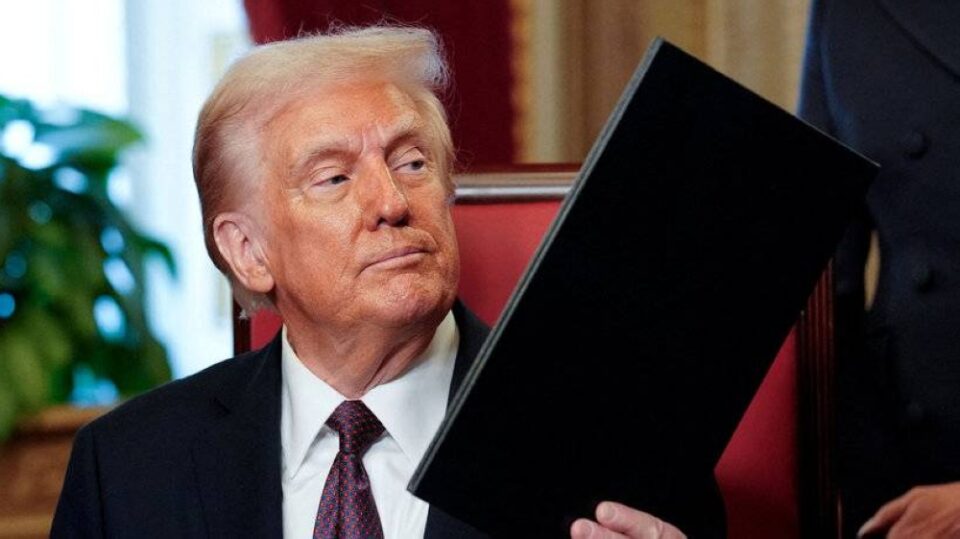US President Donald Trump signed a series of executive orders hours after his inauguration which aimed at imposing control over the federal workforce, withdrawing Washington from the Paris Climate Agreement and the World Health Organization, lifting censorship on freedom of expression, banning citizenship for illegal immigrants born on US soil, and postponing the ban on TikTok.’The United States will not sabotage our own industries while China pollutes with impunity,’ Trump said in a statement on the Paris Climate Agreement, and claimed that it placed unfair restrictions on the American economy.The decision sparked widespread criticism from Democrats and environmental groups, who described it as a move that reinforces the US' isolation on global environmental issues.In a statement to Qatar News Agency (QNA), climate change expert at the University of California Dr. Mark Stone said that the US withdrawal will negatively affect international efforts to combat climate change and reduce its credibility as an international partner.Trump also ordered a federal government hiring freeze, with the exception of jobs related to national security, public safety and the military, aimed at enhancing government efficiency.Georgetown University Professor Dr. John Williams told QNA that these steps reflect Trump's desire to achieve rapid changes, but will face major political and legal obstacles.Among the executive orders signed by Trump was a decision requiring all federal employees to return to work in person full-time. Reactions to the decision have been mixed, with a recent poll showing that returning to in-person work is supported by Republicans and seniors, while younger people prefer flexibility.Harvard University Professor Dr. Elizabeth Morgan said that bringing workers back to the office may improve productivity in some ways, but it could lead to resistance from workers who have adapted to flexible work environments.One of the most controversial orders is Trumps announcement of plans to end birthright citizenship, which would conflict with the 14th Amendment to the US Constitution, which states that 'all persons born or naturalized in the United States, and subject to the jurisdiction thereof, are citizens of the United States and of the State wherein they reside.'The decision has drawn sharp criticism from Democrats and human rights groups, who have vowed to challenge it in court. Legal analyst James Anderson told QNA that attempting to amend this right will open the door to long and complex legal battles, and the decision is likely to be rejected in the courts.In addition to these decisions, Trump signed executive orders aimed at preventing bureaucrats from issuing new regulations without administration approval, addressing the cost-of-living crisis through department-proposed plans, and ending what he described as weaponizing the government against its political opponents.Commenting on Trump's statements in his inaugural address that the golden age of the US has begun, Princeton Professor Richard Kennedy said that Trump's statements reflect his vision for reshaping the government system, but they may lead to greater political polarization within American society.Trump confirmed that he will pardon those involved in the storming of the Capitol in Jan. 6, 2021, noting that he will also cancel 80 executive orders of Biden's administration.He added that he will meet Russian President Vladimir Putin, but the date has not been set yet. He said he will try to end the war in Ukraine as soon as possible.Trump also decided to grant TikTok a 75-day grace period from the US ban decision.Regarding the situation in the Gaza Strip, the US President said that the Strip must be rebuilt after the massive destruction it suffered.With the signing of these executive orders, the Trump administration is expected to face legal and political challenges from his opponents in Congress and the courts.In this context, political analyst Michael Roberts said that Trump begins his term with decisive and quick decisions, but they carry political and legal risks that may affect the stability of his administration. As he begins his new term, President Trump appears to be seeking to make radical changes in American policies, though there will be legal and political challenges in the coming days, he added.
